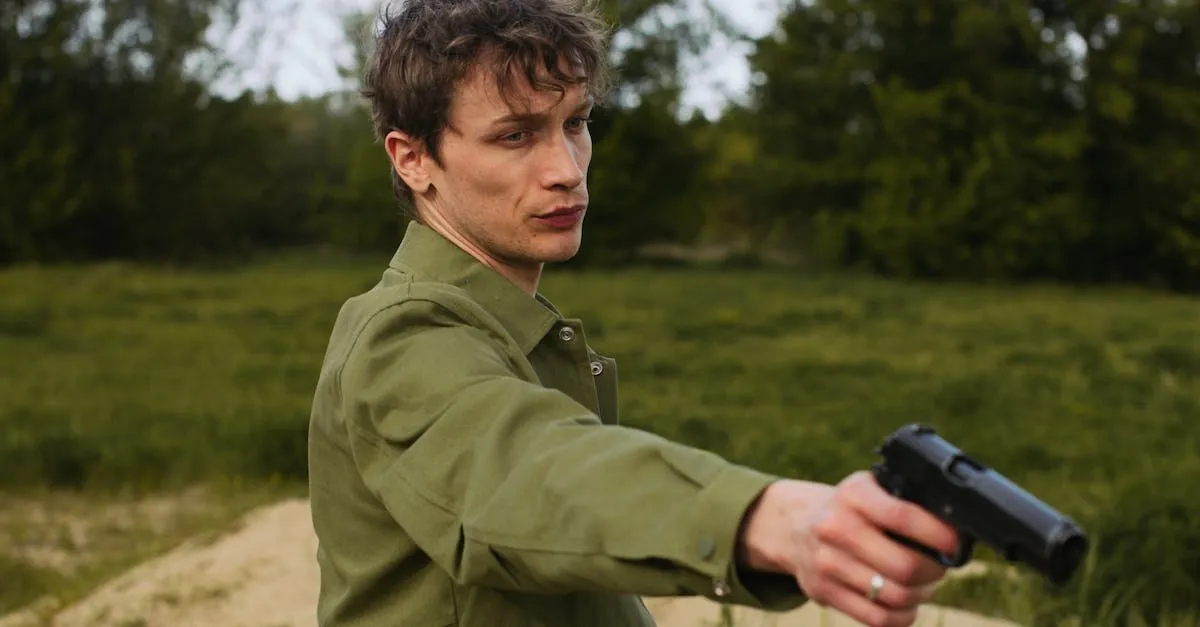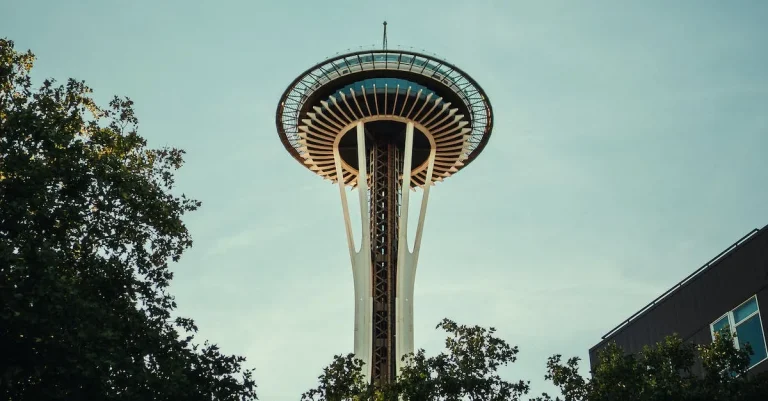Can You Shoot Someone For Trespassing In Texas? Understanding The Laws
As a property owner in Texas, you want to protect your rights and keep intruders off your land. But when does a trespass become serious enough to justify the use of lethal force?
If you’re short on time, here’s a quick answer: In Texas, you cannot legally shoot someone just for trespassing onto your property. Deadly force is only permitted when there is imminent threat of death or grievous bodily harm.
This comprehensive guide will cover Texas trespassing and self-defense laws in detail, outlining when lethal force is justified, what constitutes criminal trespass, and how to lawfully respond to trespassers.
Overview of Relevant Texas Laws
When it comes to trespassing and the use of deadly force in Texas, it is important to understand the laws in order to protect yourself and others. Texas has specific statutes that address these issues, and this article will provide an overview of the relevant laws.
Trespass Laws and Penalties
In Texas, trespassing is generally defined as entering or remaining on someone else’s property without their consent. The severity of the offense and the corresponding penalties depend on various factors, such as the type of property and the intent of the trespasser.
For example, criminal trespassing is a misdemeanor offense and can result in a fine of up to $500. If the trespasser carries a deadly weapon, the offense is elevated to a Class A misdemeanor, with penalties that may include a fine of up to $4,000 and up to one year in jail.
It’s worth noting that landowners in Texas have the right to prohibit trespassing on their property by posting signs or providing verbal notice. This helps establish clear boundaries and can aid in legal proceedings if a trespasser is apprehended.
Justifiable Use of Deadly Force
Under Texas law, the use of deadly force in self-defense or defense of others is allowed under certain circumstances. This is known as the “Castle Doctrine,” which states that an individual has the right to protect themselves in their own home or any place they have a legal right to be.
The Castle Doctrine extends to instances where a person reasonably believes that using force is necessary to protect against an imminent threat of unlawful force. However, it’s important to note that the use of deadly force should be a last resort and should be proportionate to the threat faced.
It’s also important to understand that the Castle Doctrine does not grant immunity from criminal prosecution or civil liability. Each case is evaluated based on its own circumstances, and it’s crucial to consult with legal professionals if you find yourself in a situation involving the use of deadly force.
Castle Doctrine vs. Stand Your Ground
The Castle Doctrine and Stand Your Ground are often confused, but they are not the same. While the Castle Doctrine applies to situations where the use of deadly force is justified within one’s own home or property, Stand Your Ground laws extend this right to public places as well.
Stand Your Ground laws remove the duty to retreat, meaning that individuals have the right to stand their ground and defend themselves without having to first attempt to escape or retreat from the situation.
It’s essential to understand that self-defense laws can vary from state to state. If you want to stay updated on the specific laws in Texas or any other state, consult official government websites or reputable legal sources such as FindLaw or Texas LawShield.
Remember, understanding the laws and your rights is crucial, but it’s always best to prioritize personal safety and seek legal guidance if needed. Laws are subject to change, so staying informed is the key to protecting yourself and others.
Requirements for Justified Use of Lethal Force
When it comes to using lethal force to defend oneself or property, Texas law has specific requirements that must be met in order for the use of such force to be justified. These requirements ensure that individuals are protected while also preventing the unnecessary escalation of violence.
Here are the key factors that determine whether shooting someone for trespassing is considered justified under Texas law.
Reasonable Fear of Death/Harm
One of the main requirements for using lethal force in Texas is the presence of a reasonable fear of death or serious bodily harm. This means that a person must genuinely believe that their life is in immediate danger or that they could suffer severe physical harm.
Mere trespassing alone is generally not enough to justify the use of lethal force. The threat must be significant enough to warrant such a response.
For example, if an intruder breaks into a home and the homeowner reasonably believes that their life or the lives of their family members are in imminent danger, they may be justified in using lethal force to protect themselves.
However, if the intruder poses no immediate threat of harm, shooting them would not be considered justified.
Retreat Not Required
In some states, individuals are required to retreat or try to escape before they can use lethal force in self-defense. However, Texas law does not impose a duty to retreat. This means that if someone is trespassing on your property and you fear for your life or safety, you are not obligated to retreat before using lethal force to defend yourself or others.
It’s important to note that this does not mean you can use lethal force indiscriminately. The use of force must still meet the other requirements outlined by Texas law, including a reasonable fear of death or serious bodily harm.
Proportional Response
Another crucial requirement for the justified use of lethal force in Texas is that the response must be proportional to the threat faced. This means that the force used must not exceed what is necessary to neutralize the threat.
Shooting someone for trespassing may be considered excessive force if the intruder poses no immediate danger.
For instance, if an intruder is unarmed and attempts to flee after being discovered on your property, it would not be considered proportional to shoot them. However, if the intruder is armed and poses a threat to your life or the lives of others, using lethal force may be justified.
Understanding these requirements is crucial for individuals in Texas who want to protect themselves and their property. It’s always recommended to consult with legal professionals for specific advice regarding self-defense laws in your jurisdiction.
Consequences of Unlawful Use of Force
Murder/Manslaughter Charges
Using excessive force or shooting someone without legal justification can lead to serious criminal charges, such as murder or manslaughter. In Texas, the law recognizes that taking another person’s life is a severe action that should not be taken lightly.
If it is determined that the use of force was not justified, the individual responsible may face criminal charges and potential imprisonment.
Civil Liability
In addition to facing criminal charges, individuals who unlawfully use force may also be held liable in civil court. This means that the person who was shot or their family can file a lawsuit seeking compensation for damages, including medical expenses, pain and suffering, and lost wages.
The burden of proof in civil cases is lower than in criminal cases, making it easier for the injured party to potentially win their case.
Self-Defense Claim Limitations
While Texas does have laws that allow individuals to use force in self-defense or defense of their property, there are limitations to these claims. The use of force must be necessary and proportionate to the threat faced.
If it is determined that the individual used excessive force or could have safely retreated from the situation, their claim of self-defense may not hold up in court. It is important to remember that self-defense laws vary from state to state, so it is crucial to understand the specific laws in your jurisdiction.
It is always best to consult with a qualified legal professional to fully understand the laws regarding the use of force and self-defense in your area. For more information on Texas laws regarding self-defense and the use of force, you can visit the Texas Statutes website.
Responding to Intruders and Trespassers
When it comes to dealing with intruders and trespassers on your property in Texas, it’s important to understand the laws and know your rights. While you may feel threatened or violated by someone trespassing, it’s crucial to respond in a legal and responsible manner.
Let’s take a closer look at how you can handle these situations.
Posting Signs and Securing Property
One of the first steps you can take to protect your property is by posting signs indicating that it is private property and trespassing is not allowed. By clearly marking the boundaries of your property, you are establishing a visual warning to potential intruders.
Additionally, it’s important to secure your property by ensuring that fences, gates, and other entry points are in good condition and properly locked. This helps to deter individuals from trespassing in the first place.
According to the Texas Penal Code, Section 30.05, if someone enters or remains on your property without consent and you have properly posted signs, they may be charged with criminal trespassing. It’s essential to familiarize yourself with the specific laws in your area, as they may vary slightly.
Verbal Warnings and Calling Police
If you encounter someone trespassing on your property, it’s generally best to start with a verbal warning. Politely inform the individual that they are trespassing and ask them to leave immediately. In many cases, this simple request is enough to resolve the situation peacefully.
However, if the person refuses to leave or becomes confrontational, it’s important to prioritize your safety. In such cases, it is recommended to call the police. They have the authority to handle trespassing situations and can intervene if necessary.
Remember, your safety should always be your top priority, so if you feel threatened or unsafe, do not hesitate to contact law enforcement.
Physical Removal as Last Resort
While Texas law does allow for the use of force to protect your property, it is crucial to remember that physical removal should be a last resort. Engaging in a physical altercation can escalate the situation and put you at risk of legal consequences.
If all other options have been exhausted and you find yourself in a situation where you must physically remove an intruder, it is recommended to use the minimum amount of force necessary to protect yourself and your property.
It’s important to note that the use of deadly force is generally only justifiable in situations where there is an immediate threat of serious bodily harm or death.
Remember, the laws surrounding trespassing and self-defense can be complex, and it’s always a good idea to consult with a legal professional to fully understand your rights and responsibilities.
For more information on Texas laws regarding trespassing, you can visit the Texas State Legislature website.
When Shooting May Be Justified for Protection
When it comes to self-defense, Texas has some unique laws that allow individuals to protect themselves and their property. While the general rule is that you cannot shoot someone for trespassing, there are specific circumstances in which the use of deadly force may be justified.
Understanding these laws is crucial for Texans who want to protect themselves and their loved ones.
Home Invasion Robbery
One situation in which shooting someone may be justified in Texas is during a home invasion robbery. If an intruder forcibly enters your home while you or your family are present, you may use deadly force to defend yourself.
Texas law recognizes the concept of the “Castle Doctrine,” which allows individuals to use force, including deadly force, when protecting their homes from intruders. However, it is important to exercise caution and only use deadly force if you believe that it is necessary to prevent serious bodily harm or death.
Carjacking Attempts
In Texas, shooting someone may also be justified if you find yourself in a carjacking situation. If an individual attempts to forcefully take your vehicle, you have the right to defend yourself using deadly force.
However, it is important to remember that you should only use deadly force as a last resort when there is an imminent threat to your life or the life of others. It is always recommended to prioritize your safety and contact law enforcement authorities as soon as possible.
Arson Attacks on Home
Another situation where shooting someone may be justified in Texas is during an arson attack on your home. If someone sets fire to your property, and you reasonably believe that the fire will cause serious bodily harm or death, you may use deadly force to protect yourself and your property.
It is important to note that you should only use deadly force if there is no other reasonable alternative available to you.
It is important to consult the specific laws in your jurisdiction and seek legal advice if you find yourself in a situation where shooting someone for protection may be necessary. Understanding the laws and exercising caution in these situations can help ensure that you are acting within the boundaries of the law while protecting yourself and your loved ones.
Conclusion
While Texas has strong self-defense laws, you cannot legally shoot someone simply for trespassing onto your property. Deadly force requires a reasonable fear of imminent death or harm. Understanding proper responses and the consequences of unjustified force is crucial.
With the right approach of deterrence, warning, and calling law enforcement when needed, most trespassers can be handled through lawful means only.








